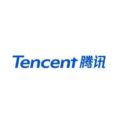Unity Revenue Climbs by 53.3%; Statespace Raises USD$29m
by Mathew Broughton on 13th Nov 2020 in News


TheGamingEconomy’s Daily Digest brings you the prevalent business stories in gaming. In today’s news: Unity revenue climbs by 53.3%; Statespace raises USD$29m (£22m); and Tencent gaming revenue up 45%.
Unity revenue climbs by 53.3%
Unity Software Inc. has announced its financial results for the third quarter ended 30th September 2020, in which it completed its USD$1.3bn (£987m) IPO on the New York Stock Exchange, disclosing that revenue climbed by 53.3% year-over-year to USD$200.8m (£152.5m). The earnings rise was driven by several titles constructed using the Unity engine, including Fall Guys (Mediatonic), Genshin Impact (miHoYo), and GTFO (10 Chambers Collective). However, Unity reported an operating loss of USD$141.7m (£107.6m), deepening from the USD$41.7m (£31.7m) loss generated at the same time last year. In its S-1 filings prior to listing publicly at a valuation of approximately USD$18bn (£14bn), Unity disclosed an annual loss of USD$163.2m (£123.9m), with the company expecting a loss of USD$66m-USD$71m (£50m-£54m) for 2020 from revenue of USD$752m-USD$756m (£571m-£574m).
In a statement accompanying the results, Unity President and CEO Kim John Riccitiello commented, "Companies in the gaming industry have been using real-time 3D technology to create immersive, interactive content for over two decades, and we are proud to be able to support more than 90% of the top game companies globally. Now, developers in other industries are taking note and engaging with Unity in transforming their content to be real-time 3D. Creators - from game developers to artists, architects, automotive designers, filmmakers, and more - are turning to Unity to bring their imaginations to life."
In pre-market trading at the time of writing, Unity Software Inc. (NYSE: U) share price is down 0.73% at USD$101.00 (£76.70).
Statespace raises USD$29m

Video game training solutions provider Statespace has raised USD$29m (£22m) in a Series B funding round led by Kholsa Ventures, which previously led the New York firm's USD$15m (£11m) Series A tranche, completed in May this year. The investment will be used to continue the company's organic growth strategy, include aiding development of its player-taught education product dubbed "The Academy" and commercial solutions outside of the gaming industry, most notably a medical application for stroke and cerebral palsy rehabilitation. Statespace, best known for its Aim Lab platform, has seen its monthly user base triple to 1.5 million since May.
As esports investment as a whole surged through the last quarter, up by 714% to USD$1.33bn (£1.01bn) according to data tracked by TheGamingEconomy's TGE Index, so to did support for training platforms for both casual and professional players. Recent examples include a USD$6m (£4.6m) financing round for Bayes Holding (formerly Dojo Madness) in September; €100,000 (£88,570) in accelerator funding for Fridai in October; and Corsair's acquisition of Gamer Sensei earlier this week for an undisclosed sum.
Tencent gaming revenue up 45%

Shenzhen-based technology and video game conglomerate Tencent Holdings Ltd. has released its unaudited financial statement for the third quarter ended 30th September 2020, revealing that revenue generated from its online gaming division increased by 45% year-over year to CN¥41.42bn (£4.750bn). This was driven by the performance of its mobile portfolio, chiefly Peacekeeper Elite/PUBG Mobile and Honour of Kings, with revenue from its smartphone game operations climbing to CN¥39.17bn (£4.492bn) over the three-month period. For the company as a whole, revenue climbed by 29% from last year to CN¥125.45bn (£14.39bn), while operating profit climbed by a similar measure (34%) to CN¥38.12bn (£4.372bn).
Despite an executive order signed in the United States by outgoing President Donald Trump targeting its WeChat platform, and an ongoing examination into its US investments, Tencent has certainly not slowed in terms of its investment and M&A strategy in the gaming industry, though it has shifted focus somewhat onto the European market. Since Q2 2020 alone, the Chinese firm has invested in excess of USD$2.267bn (£1.721bn) in the sector according to data compiled in the TGE Index.
Ma Huateng, Chairman and CEO of Tencent, commented, "This quarter marked the second anniversary of our strategic organisation upgrade, which was intended to enhance our strength in Consumer Internet and extend our presence to Industrial Internet. While the upgrade was designed to bear fruit over the longer run, we are already seeing initial benefits in areas such as consolidating our advertising services, rejuvenating our product and content platforms, growing our cloud and SaaS businesses and building an internal open source code base. In the face of public health, macroeconomic, and geopolitical challenges, we will seek to sharpen our focus, innovate, and collaborate with our partners in order to better serve our users, customers and the society at large."
Developer SoftwareEngineesportsFinancial ResultsInvestmentPublisherSeries BTechnology







Follow TheGamingEconomy